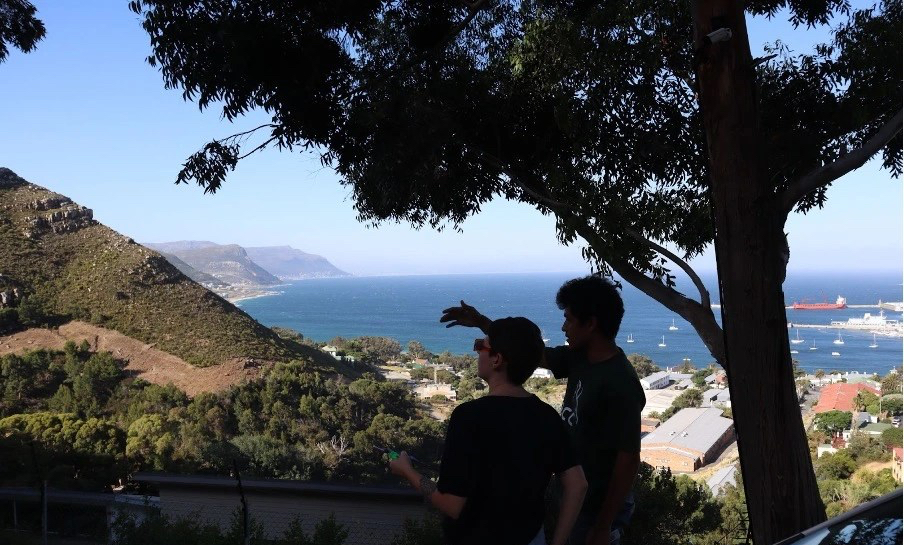
Photo credit: J.Enqvist
Frequently asked questions
Some questions about the project have come up several time when we have met and talked with residents. We have compiled and answered these questions here, and will continue to do so throughout the project. If you have anything you’re wondering about, let us know in the contact form below! We won’t share any personal information about who has asked questions.
Q: How can a theatre play be part of a research project?
A: Our collaboration with Empatheatre has two aims. First, it is one of several tools we use to share our preliminary research findings with residents and others, along with scientific articles, reports, infographics and more. The baboon topic is complex, and a live performance can convey messages that are hard to express in written text. Second, the play gives us a chance to collect more data. Our Empatheatre partners have over a decade of experience working with difficult, polarising topics, and are often able to create a space where new types of conversations can take place. This is a critical opportunity for us researchers to learn by listening to audiences’ reactions and reflections.
Q: Will you study baboon-visited areas outside the Cape Peninsula?
A: No, this project is limited to Cape Town due to limited staff and resource availability. Another reason is that there is a relative lack of research about human-wildlife interactions in and near major cities, compared to more rural and/or natural landscapes.
Q: Why do you call it “Unruly” Natures? Isn’t all nature unruly, and do you see that as a problem?
A: We use this term to draw attention to how the natural world, ecosystems, and individual species are often difficult to predict. We do not consider this a positive or negative trait, just something that needs to be considered when we, as humans, interact with the rest of nature.
Q: Who are you working for?
A: The project is based at Stockholm University in Sweden, and all the funding for the project comes from a grant from the Swedish Research Council for Sustainable Development (Formas). Our work in this project is not done on behalf of, or by request of, any person or organisation in South Africa. That said, we meet with and talk to anyone who is interested in talking to us, including local residents, service providers, city officials, activists, academics, NGOs, and various authorities. Listening to a wide range of perspectives is important in our type of research.
Q: Why are you doing this, and why now?
A: We do this research because we think there is a need for better knowledge about people’s experiences of living in baboon-visited areas. The timing of the project is determined by when the funding was secured (end of 2021), the team’s previous work schedules, and how quickly we could prepare the administrative parts of the project. The timing has nothing to do with the City of Cape Town’s current or future plans for the Urban Baboon Programme.
Q: How do you collect the survey data?
A: Our aim is to capture the experiences and views of a cross-section of the population in baboon-visited areas – not just those who have the strongest opinions and loudest voices. In each area, we will use what is called “systematic sampling”, which means that we select households at random, at predetermined intervals. We will then conduct surveys by going door-to-door. We may at later stages also add other sampling strategies, if the initial response rate is very low. If so, this will be communicated on the website.
Q: My neighbour was invited to participate in your survey, but I was not. Why?
A: Our research method uses what is called “systematic sampling”. Because we don’t have the resources to survey every single household, we instead aim to cover a representative cross-section of the study area. Households are therefore pre-selected at random on an even interval, and the fieldworkers are only allowed to collect responses from the addresses that fall on their route. This is to ensure that our survey findings is as representative as possible of all residents. You are welcome to contact us for more details about the research method.
Q: Baboons are a very sensitive topic in Cape Town and people might not want to share their views. How can we know that this study conducted in a responsible, ethical way?
A: The project has been reviewed and approved by the Swedish Ethics Review Authority (case 2022-05654-01) as well as University of Cape Town’s Faculty of Science Research Ethics Committee (approval code FSREC 016-2023). Any personal data collected will be processed according to EU General Data Protection Regulation. Participating in the study is completely voluntary.
More questions? Contact the research team!
Unruly Natures welcomes comments and suggestions. Please contact us if you have any questions, thoughts, or you wish to collaborate.
To receive an email notification each time we post something under News & events, subscribe below.